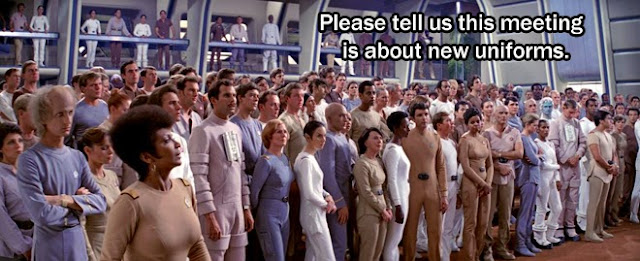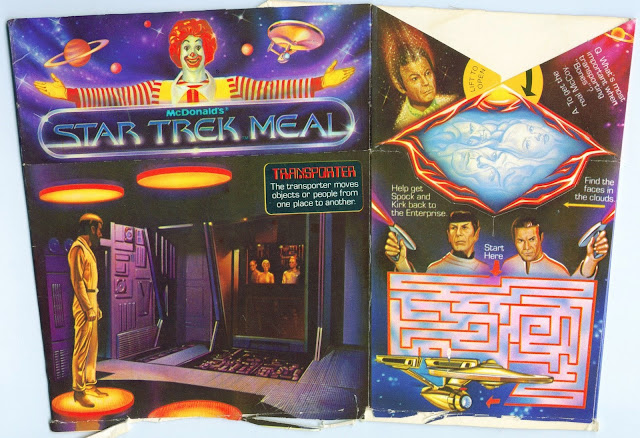The Star Wars franchise had quite an artistic comeback last winter. Not everyone was over the moon of Yavin about The Force Awakens, but when even my former colleague Richard von Busack--the Metro Newspapers film critic who prefers the Bond movies and Alexander Salkind's Superman movies over the Star Wars franchise as '70s and '80s tentpole entertainment and has found the Star Wars flicks to be too much like bad '70s Sid and Marty Krofft kids' shows--considered parts of The Force Awakens to be genuinely moving and more akin to something like Robin and Marian rather than a Krofft show, you know it's an above-average Star Wars installment.
I found The Force Awakens to be satisfying as well, even though the film totally wasted Gwendoline Christie (Game of Thrones reduced her screen time as Brienne of Tarth last season for this, a role where she never says anything memorable and never takes off her helmet?) and Raid stars Yayan Ruhian and Iko Uwais. You don't hire Mad Dog and Rama to just stand around and become people-shaped snacks for a giant space monster two minutes later. You hire them to smash people's noggins in with their knees and break motherfuckers' legs with their bare hands.
Now it's Star Trek's turn to experience an artistic comeback as a sci-fi multimedia franchise after a major low point, and the timing for its potential comeback is perfect because 2016 marks the 50th anniversary of the original Star Trek's premiere on NBC. I don't know why Paramount doesn't acknowledge 1964 as Star Trek's birth year: that was when Lucille Ball, who was breaking ground as the female head of an indie TV studio, took a chance on Star Trek, and Ball's Desilu studio, writer/producer Gene Roddenberry and director Robert Butler began filming "The Cage," the first of two pilot episodes for Star Trek. So Star Trek is actually 52 years old, but who's counting--aside from Poindexter in a basement somewhere in Yonkers, who claims to be the world's only expert on the exact time and date when Roddenberry first started typing up the "Cage" writer's bible about "Captain Robert M. April"?
Paramount has two major Star Trek projects on the horizon: Justin Lin's Star Trek Beyond in July and an hour-long Star Trek anthology show from Hannibal showrunner Bryan Fuller for the CBS All Access streaming service in 2017. I'm a fan of the episodes Lin directed for Community and the Lin movies Better Luck Tomorrow and Fast Five, so I have some faith that Star Trek Beyond won't be atrocious, especially when--in addition to a director who grew up watching the original Star Trek on KCOP and isn't going to turn Trek into godawful 9/11 truther propaganda--the threequel is co-written by cast member Simon Pegg, whose past writing credits include the terrific Cornetto trilogy. The current J.J. Abrams-produced Trek movies appear to be echoing the path of the Mission: Impossible movies: the first one is a highly entertaining action flick, unless you're a hardcore fan of the source material who can't stand the changes that have been made to the material; the totally dumbed-down second one sucks ass; and the threequel appears to be a soft reboot after nobody--not even a lot of the more casual fans of the franchise--would admit to liking the second one, despite the second one making a shitload of money.
 |
| Star Trek Beyond (Photo source: Wired) |
But I'm more enthusiastic about Trek's return to TV--the medium where Trek can be as cerebral as it wants to be and it doesn't have to dumb itself down in order to satisfy international audiences, who have always been indifferent to Trek movies--because Nicholas Meyer, the director of two of the best Trek flicks, The Wrath of Khan and The Undiscovered Country, is attached to the project. Also, Fuller--who wrote for both Deep Space Nine and Voyager before going on to create several short-lived and weird but enjoyable shows and envisioning, as he was working on those cult favorites, a nicely progressive take on Trek in which Angela Bassett would get to be the captain and Rosario Dawson would be her first officer--is the perfect person to be at the helm.
I like three of the seven Star Wars movies and Genndy Tartakovsky's Star Wars: Clone Wars animated shorts, but my heart belongs to Trek because at its best, Trek has a lot more on its mind than just action sequences and space battles, and it cast Asian actors in major, non-stereotypical roles, long before Star Wars did the same this year when it cast newcomer Kelly Marie Tran in a leading role for the eighth installment. Though I like Trek slightly more than Wars, I don't believe in pitting these two sci-fi franchises--or any other pair of sci-fi franchises--against each other as if they're Drake and Meek Mill, which is why I've rolled my eyes when Scrubs star Donald Faison, a Wars nerd, publicly bashes Trek to create beef between the Wars contingent and the Trek heads, or when Kevin Church, a writer who runs They Boldly Went, a Tumblr about the '60s Trek, uses his Tumblr to bash Doctor Who. A person can like both Wars and Trek at the same time (or Trek and Who at the same time), just like how someone doesn't have to be a Nas person or a Jay Z person. Can't a motherfucker be both? Nas and Hov are about the same quality-wise. They've both had the same amount of above-average material and lousy material. The same is true about Wars and Trek.
That being said, Trek, its first three spinoffs and nine of its first 10 films are also home to some of the ugliest futuristic clothes ever stitched together in Hollywood (the outlier out of the 10 films is First Contact, which marked the first time when, thanks to Deborah Everton, the costume designer for The Craft, Trek's ideas of futuristic attire looked sensible and GQ-ish for a change and they didn't suck). Trek costume designer William Ware Theiss' offbeat work on the '60s show isn't totally ugly. I'm a red-blooded male--I like looking at the female guest stars slinking around in skin-baring costumes created by Theiss. Those costumes are the highlights of Theiss' work. But the uniform tops Theiss designed for Starfleet, especially the male officers, don't look like uniform tops made for a futuristic space Navy. They look more like softball ringer T-shirts. I keep expecting to see Spock run out a bunt. The brightly colored Starfleet uniforms were intended to capitalize on the rise of color TV and showcase NBC's visual advances as the self-proclaimed "Full Color Network," but in 2016, the cartoony and cheap-looking velour shirts just look strange and can occasionally take attention away from the drama during a dead-serious, non-campy and exemplary episode like "Balance of Terror."
At least the '60s uniforms aren't as hideous as costume designer Robert Fletcher's Starfleet uniform redesigns in Star Trek: The Motion Picture. Sure, it's great that female officers finally got to wear pants again, 13 years after "The Corbomite Maneuver" threw away their pants and required them to wear only miniskirts, but otherwise, the Star Trek: TMP outfits are the ugliest clothes in all of Trek. Entertainment Weekly's Darren Franich, who's been reassessing each of the Trek movies because of the franchise's 50th anniversary, came up with a great description for the epic fail that was the TMP revamp of both the uniforms and the Enterprise set design color schemes: the beige, gray, light brown and off-white clothes look like furniture, and the furniture looks like clothes.



